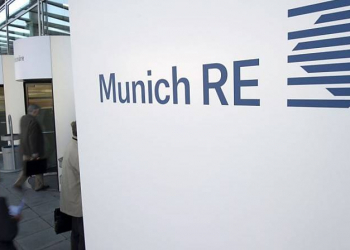The FINANCIAL — FDA is warning consumers and health care providers that the agency has seen a sharp increase in hand sanitizer products that are labeled to contain ethanol (also known as ethyl alcohol) but that have tested positive for methanol contamination. Methanol, or wood alcohol, is a substance that can be toxic when absorbed through the skin or ingested and can be life-threatening when ingested. Also, recipes for DIY hand sanitizer are popping all over the internet. But if made incorrectly, it can be downright harmful.
The U.S. Food and Drug Administration’s running list of dangerous hand sanitizers has expanded to 59 products, according to a recent update. All of the hand sanitizers were manufactured in Mexico and have been flagged for “risk of methanol contamination.” Fifty-five products on the list have an issued recall, FOX Business reported.
FDA is aware of adults and children ingesting hand sanitizer products contaminated with methanol that has led to recent adverse events including blindness, hospitalizations and death.
“Methanol is not an acceptable active ingredient for hand sanitizers and must not be used due to its toxic effects. FDA’s investigation of methanol in certain hand sanitizers is ongoing. Consumers who have been exposed to hand sanitizer containing methanol and are experiencing symptoms should seek immediate treatment for potential reversal of toxic effects of methanol poisoning,” The Food and Drug Administration stated.
FDA reminds consumers to wash their hands often with soap and water for at least 20 seconds, especially after going to the bathroom; before eating; and after coughing, sneezing, or blowing one’s nose. If soap and water are not readily available, the Centers for Disease Control and Prevention (CDC) recommend consumers use an alcohol-based hand sanitizer that contains at least 60 percent ethanol (also referred to as ethyl alcohol).
Initial symptoms of methanol poisoning can include headache, nausea and dizziness in the hours immediately after the exposure. More serious symptoms that can develop include blindness and, in some cases, death. Consumers should also be wary of hand sanitizers marked as FDA-approved because the FDA does not approve hand sanitizers, ABC News wrote.
Earlier this year, sales of hand sanitizer in supermarkets have drastically increased amid the coronavirus outbreak. On the auction site 50ml bottles of Cien hand gel, which could be bought in Markers for 49p was listed for £39.99.
FDA recommends that consumers do not make their own hand sanitizer. If made incorrectly, hand sanitizer can be ineffective, and there have been reports of skin burns from homemade hand sanitizer. The agency lacks verifiable information on the methods being used to prepare hand sanitizer at home and whether they are safe for use on human skin.
The Global Hand Sanitizer Market size is expected to reach $3.65 billion by 2026, rising at a market growth of 12.3% CAGR during the forecast period. Global sales of hand sanitizers have been significantly growing over the years, and the market is driven due to the growing awareness among the consumers over the need for hygiene which is expected to prevent the spread of contagious diseases, according to Business Wire. Periodic outbreak of Avian flu, Swine flu, and SARS, Ebola virus disease (EVD) epidemic in the Western Africa has been a major factor in driving the demand for hand sanitizers globally.
Coronavirus disease (COVID-19) is an infectious disease caused by a newly discovered coronavirus. At this time, there are no specific vaccines or treatments for COVID-19. However, there are many ongoing clinical trials evaluating potential treatments. Currently, there are 4,914,006 active cases of coronavirus in the world. 7,640,000 people have already recovered.
A new study shows COVID-19 may cause brain disorders even in people with mild coronavirus symptoms


































Discussion about this post